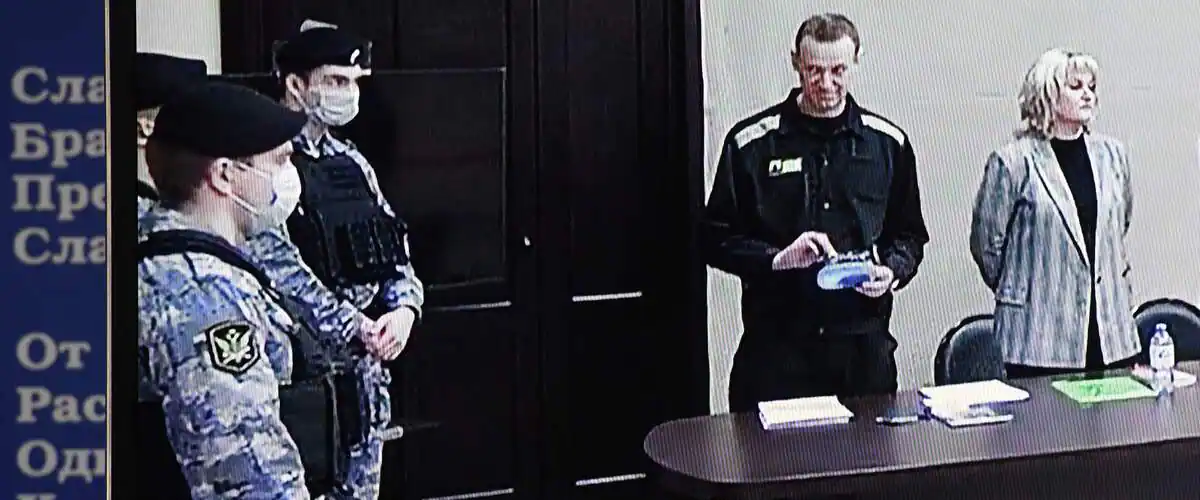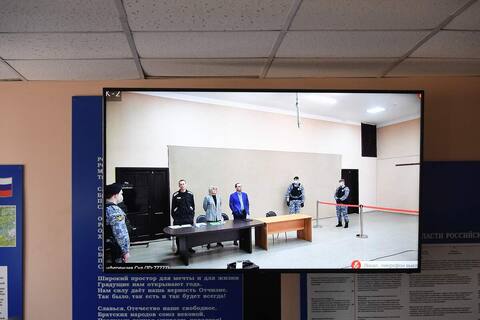A Russian judge on Tuesday sentenced Alexei Navalny to nine years in prison in a colony of harsh conditions, further aggravating the crackdown on the Kremlin’s main opponent, in the midst of an offensive in Ukraine.
• Read also: Russian prosecutors demand 13 years in prison for opponent Navalny
Russian power is strengthening its legal arsenal in all directions to stifle any criticism of the authority. The last example, the adoption of a law, on Tuesday, provides for strict penalties to punish false information about the work of Russian enterprises abroad.
The sentence of nine years imprisonment issued against the opponent shall be rescinded and shall replace the sentence of two and a half years that he was serving, and this includes the year he has already served in prison.
Alexei Navalny, who had been imprisoned for fraud at the beginning of 2021, was sentenced this time for “fraud” and “contempt for a judge,” charges he considers political.
Except for an unlikely victory on appeal, he will have to be held in a “cruel regime” colony, isolated places and where conditions are much harsher than the so-called “general” colonies like Pokrov where he is currently imprisoned.
Within the walls of this prison, 100 kilometers from Moscow, the opponent has been tried since mid-February in an improvised courtroom.
Putin is afraid of the truth, I have always said that. After his sentencing, he said, according to the messages posted on his Twitter account: “
Lawyers arrested
The 45-year-old anti-corruption activist appeared at Tuesday’s hearing in the uniform of a convict, his face gaunt, in the company of his attorney.
An AFP journalist immediately noted that after the ruling, the latter was briefly detained upon leaving prison. Their arrest came after the police asked them to leave the street where they were speaking to the press.
About a hundred journalists were able to attend the video broadcast of the hearing in a room set up in the penal colony.
One of the opponent’s supporters came to demonstrate in front of the prison.
The latter, Leonid Panionis, commented, “Navalny is a hero (…) People stay at home, they are afraid.”
In the case tried on Tuesday, Alexei Navalny was accused of embezzling millions of rubles in donations to his anti-corruption organizations and “contempt of court” during an earlier trial.
Lowe asserts that the Kremlin orchestrated these accusations to keep him in prison for as long as possible.
Famous for his investigations into the corruption of elites, Alexei Navalny suffered for more than two years from the unrestrained repression of power.
In August 2020, he fell seriously ill, the victim of a nerve agent poisoning sponsored by the Russian president, he said. The Kremlin denies this, but the Russian authorities have never investigated the alleged assassination attempt.
Upon returning to Russia in January 2021, after five months of convalescence, he was arrested and sentenced to two and a half years in prison in a 2014 “fraud” case involving the French company Yves Rocher.
In June 2021, his organizations were designated “extremist” and banned, leading many activists into exile. Others have been arrested and face harsh prison sentences.
Opposition to the conflict in Ukraine
This continued repression was accompanied by a ban on the latest media and NGOs critical of the Kremlin.
Thus, on Tuesday, the Supreme Court of Russia rejected a request to suspend the dissolution of the NGO Memorial, which was based on an order of the European Court of Human Rights, confirming the dismantling of this pillar of civil society.
From his penal colony, Alexei Navalny continues to send messages criticizing the power of Vladimir Putin and the offensive in Ukraine.
He continued his call to demonstrate against the conflict despite the risks involved, as authorities bolstered their legal arsenal, with heavy prison sentences at stake, to silence any criticism of the Russian military.
At the same time, the government tightened its grip on the dissemination of information, blocking access in Russia to dozens of media outlets and many foreign social networks.

“Extreme twitteraholic. Passionate travel nerd. Hardcore zombie trailblazer. Web fanatic. Evil bacon geek.”



